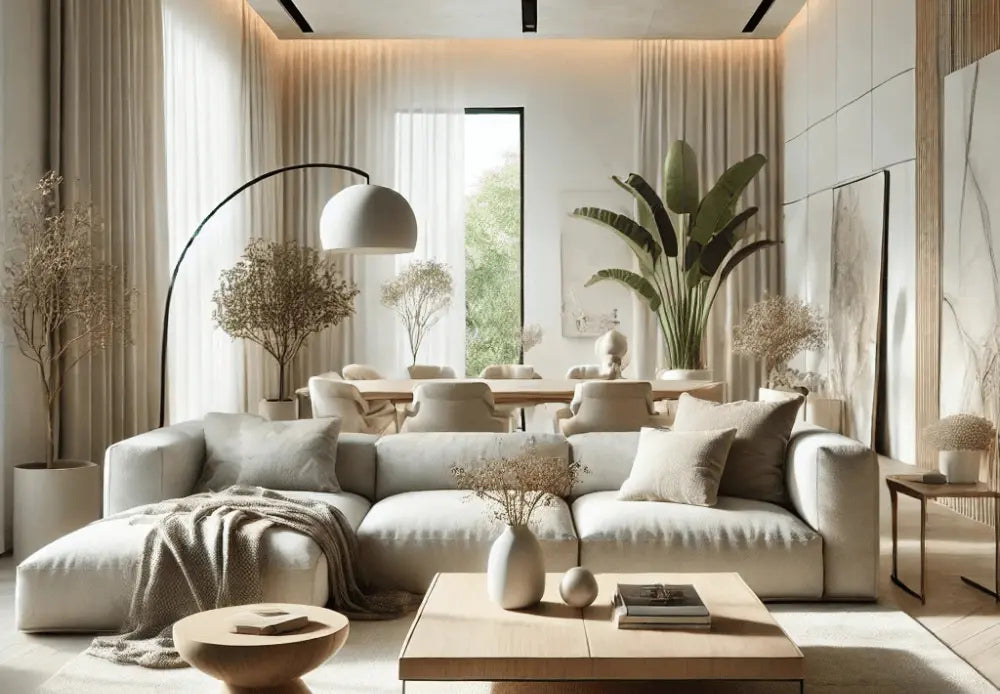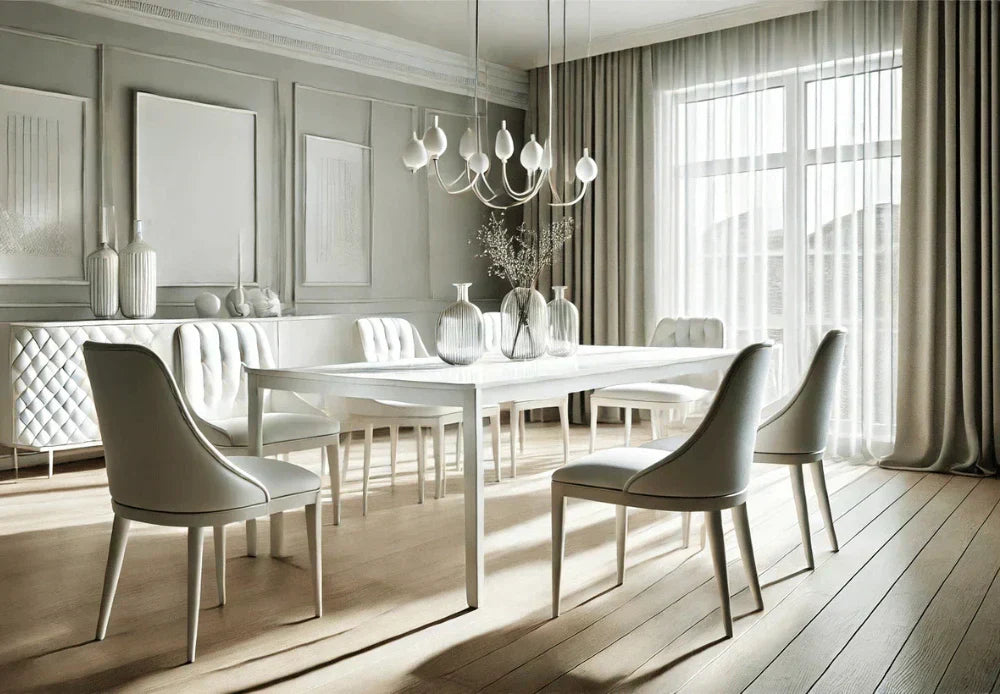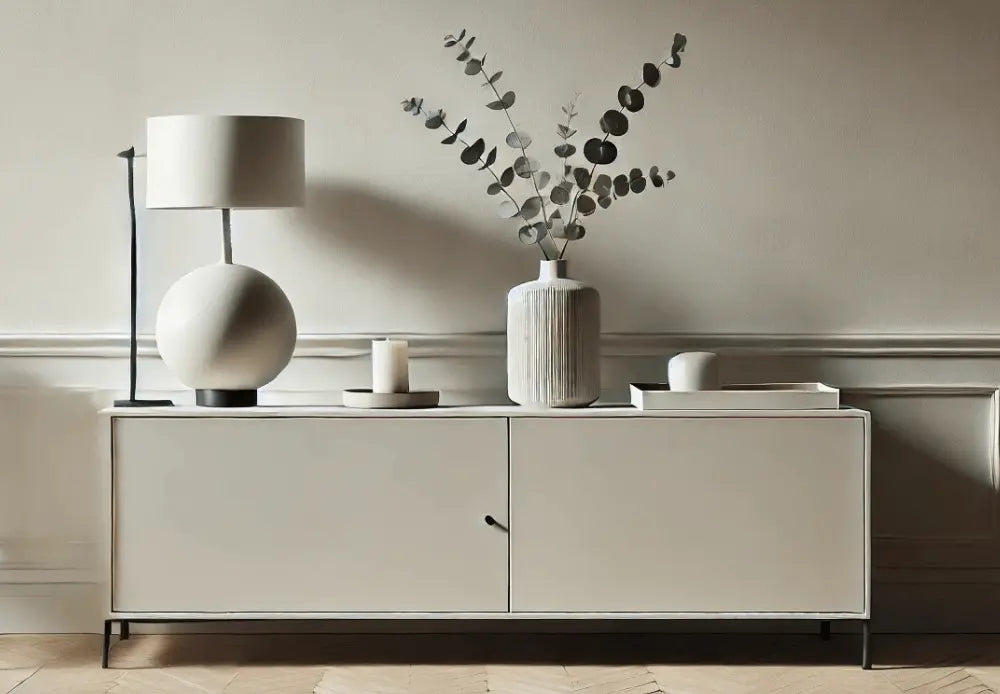In a world where consumerism seems to dominate everyday life, minimalism emerges as a way to regain balance and harmony. Minimalism as a life philosophy helps simplify daily life by eliminating unnecessary things and habits that distract us from what truly matters. In this article, you will learn what minimalism entails in practice, what its key principles are, and how to incorporate it into your life. Minimalism positively impacts not only the quality of life but also the way we perceive needs and values.
Table of Contents:
- What is Minimalism?
- The History and Promoters of Minimalism
- What Does Minimalism Entail?
- Minimalism in Different Aspects of Life
- Minimalism in Art and Design
- What Are the Benefits of a Minimalist Lifestyle?
- How to Start Minimalism in Your Life?
What is Minimalism?
Minimalism as a Philosophy: What Is It Really About?
Minimalism is a life philosophy that focuses on simplifying daily life by reducing excess things of various kinds. It aims to achieve harmony and balance through conscious limitation to what is truly essential. It is a way to discover what is truly important by eliminating chaos and focusing on the essence of daily life.
Minimalism vs. Simplicity: Key Principles
Minimalism and simplicity go hand in hand, emphasizing the importance of limiting possessions in favor of quality and functionality. This approach involves focusing on values such as time, relationships, and living space instead of accumulating things. Minimalism allows you to simplify life and concentrate on what brings true satisfaction and joy.
Minimalism vs. Consumerism: Opposing Approaches
Minimalism and consumerism are two completely different approaches to life. While consumerism is based on the constant pursuit of having more, minimalism encourages the conscious relinquishment of unnecessary goods and focusing on what is genuinely valuable. By introducing minimalism into life, we can limit the purchase of unnecessary items, leading to greater freedom and harmony.

Table for a Minimalist Interior
The History and Promoters of Minimalism
Minimalism did not appear suddenly – its roots reach back to both ancient spiritual traditions and contemporary social movements. In response to the excess of things and the chaos of the modern world, minimalism allows focusing on what is important, simplifies personal daily life, and leads to greater harmony. A minimalist lifestyle helps find a balance between needs and reality, offering a conscious approach to possessions, relationships, and daily choices.
Leo Babauta: The Main Promoter of Minimalism
One of the most well-known promoters of the minimalist lifestyle is Leo Babauta – the creator of the blog Zen Habits, which has inspired millions of people to simplify their daily lives. Babauta, having experienced chaos and excess himself, decided to practice minimalism by eliminating unnecessary commitments, reducing excess things, and simplifying his day. His minimalist philosophy focuses on conscious limitation, elimination of excess items, and finding peace in simplicity.
Minimalism and quality of life are the main themes of his work – he shows how reducing the number of things allows you to regain time and energy for what truly matters. Minimalism simplifies life, helping people understand that it is not possessions that define our happiness. Through his writings, Babauta inspires taking the first steps toward a minimalist lifestyle, proving that daily life can become simpler and fuller if we consciously choose minimalism.
Anti-Consumerism as a Movement Supporting Minimalism
Minimalism and consumerism are two opposing approaches to life. In a world where buying unnecessary items has become the norm, the anti-consumerist movement provides significant support for minimalist philosophy. It promotes a conscious life free from the pressure of possession and the constant pursuit of "more."
Minimalism positively impacts the quality of life by allowing liberation from materialistic expectations of society and focusing on valuable aspects of daily life. Anti-consumerism emphasizes that excess things do not bring happiness but only burden the mind and space. By introducing minimalism into your life, you learn that less is more.
Minimalism and reducing unnecessary things are key steps in this journey. By limiting excess things, we can better manage our time, finances, and space, leading to greater harmony and better quality of life. The contemporary anti-consumerist movement encourages a shift to a more conscious and sustainable lifestyle – in line with values that truly matter.
Minimalism as a philosophy is a path to a simpler, more satisfying life. Rejecting material excess and making conscious decisions about possessions allows minimalism to provide not only inner peace but also a deeper understanding of one's needs. It is not just a trend – it is a lifestyle that offers freedom and allows focusing on what truly matters.

Console for a Minimalist Interior
What Does Minimalism Entail?
How to Incorporate Minimalism into Daily Life?
Minimalism in practice begins with small steps, such as reviewing your possessions and assessing which ones are truly needed. It is important to make conscious choices and consistently strive to reduce excess in various aspects of life. Minimalism and lifestyle change are processes that require patience and consistency.
Minimalism and the Reduction of Unnecessary Things
Minimalism and reducing the number of things are among the most important steps toward a simpler life. You can start by sorting items into those that are regularly used and those that can be given away, sold, or discarded. Minimalism and reducing unnecessary things help create a more organized and peaceful space.
Conscious Choices: How to Make Decisions Aligned with Values
Minimalism and conscious living involve choosing what aligns with your personal values. Instead of following fashion or impulsive buying, it's worth considering whether a particular item truly adds value to your life. This is the key to a more satisfying life.

Wall Shelves for a Simple Interior
Minimalism in Different Aspects of Life
Minimalism at Home: Simple and Functional Space
Minimalism and reducing the number of things are among the key steps in creating a space that fosters peace and concentration. Excess items can cause chaos, stress, and hinder daily life. A minimalist lifestyle at home means surrounding yourself only with what is necessary and functional, eliminating unnecessary things, and striving for harmony in interior arrangements. Minimalist interior design combines simplicity, natural materials, and well-planned space that promotes comfort and quality of life.
Minimalism in Finances: Cutting Expenses and Budget Management
Minimalism in practice does not end with physical space – it also includes how you manage finances. Excess items often result from impulsive purchasing decisions and unthoughtful spending. Minimalism and conscious living in finances mean controlling your budget, avoiding unnecessary purchases, and focusing on quality over quantity. Introducing minimalism into your finances can reduce the stress associated with excessive spending, save money for truly important things, and strive for greater financial stability.
Minimalism in Relationships: Quality Over Quantity
A minimalist life allows you to see that true value lies in the quality of relationships, not the number of them. Minimalism and a valuable life involve nurturing deep, authentic bonds instead of surrounding yourself with numerous superficial acquaintances. In a world full of stimuli and constant communication, it is important to consciously choose who you spend time with and strive for relationships based on mutual respect, understanding, and shared values.
Minimalism in Fashion: Capsule Wardrobe and Conscious Shopping
Minimalism and consumerism are two opposing approaches to fashion. In the age of fast fashion, accumulating clothes has become the norm, but a minimalist lifestyle encourages a conscious approach to dressing. A capsule wardrobe is one of the best examples of minimalism in practice – limiting the number of clothes to those that are versatile, high-quality, and can be mixed and matched for different outfits. Introducing minimalism into fashion also means reducing the purchase of unnecessary items and choosing clothes that serve you for years, not just one season.
Minimalism in Ecology: Sustainable Development and Waste Reduction
Minimalism and striving for harmony also involve caring for the environment. Minimalism in ecology means a conscious approach to resources, avoiding waste, and reducing trash. By limiting excess things, buying less but better, and caring for the reuse of items, we can significantly reduce our carbon footprint. A minimalist lifestyle supports sustainable development by encouraging thoughtful choices and respect for natural resources.

Shelf for a Minimalist Interior
Minimalism in Art and Design
Minimalism in Art: Simplicity of Forms and Elimination of Ornamentation
Minimalism in art is characterized by the simplicity of forms, reduction of unnecessary elements, and focus on the essence of the work. Examples include works by artists like Donald Judd and Agnes Martin. The minimalist philosophy in art allows expressing the essence with minimal means.
Minimalism in Architecture: Functionality and Economy of Expression
In architecture, minimalism involves creating spaces that are functional, aesthetically pleasing, and free from unnecessary decorations. Natural materials and simple forms are often used to promote harmony. A minimalist lifestyle in such spaces helps reduce stress and improve quality of life.
Minimalism in Design: The Beauty of Simple Projects
Minimalism in design highlights the beauty of simplicity and functionality. In product and interior design, the goal is to balance form and function, making minimalist solutions timeless. Minimalism in interior arrangements emphasizes the importance of space and light.

What Are the Benefits of a Minimalist Lifestyle?
Reduction of Stress and Improvement of Life Quality
Minimalism positively impacts the quality of life by helping reduce stress associated with excess things and commitments. By simplifying daily life, you gain more time for what truly matters. Minimalism and quality of life are inseparably connected.
Minimalism and the Pursuit of Harmony and Balance
Minimalism and the pursuit of harmony are key elements of this philosophy. By focusing on what is essential, we can achieve a balance between personal and professional life. A minimalist lifestyle helps find inner peace.
Freedom from Excess Things and Commitments
Minimalism simplifies life, allowing you to free yourself from the pressure of possession and excess. This gives you greater freedom in making decisions and shaping your daily life. Minimalism and the pursuit of freedom are steps toward a more conscious life.
How to Start Minimalism in Your Life?
Introducing minimalism into your life does not have to be a revolution – you can start with small steps. Organizing your space, creating priority lists, and eliminating unnecessary things are actions that can gradually change your daily routine. A minimalist lifestyle is not just about reducing items but also about discovering new, more conscious habits and approaches to responsibilities. When we eliminate chaos, we make space for what truly matters – peace, relationships, and personal growth.
However, it is a process that may come with challenges. It is often difficult to part with items we have accumulated over the years, believing they define our identity or provide security. Fear of change is a natural reaction, but the key to success is consistency and focusing on long-term benefits. Minimalism positively impacts not only our space but also interpersonal relationships and mental health. When we free ourselves from excess, we have more energy and time for what builds the quality of life.
Minimalism and a valuable life are not just about reducing things but also about a deeper understanding of oneself. It is the art of conscious choice – focusing on what truly matters instead of following the pressure of possession and the constant pursuit of "more." Living in accordance with minimalist principles teaches us to see beauty in simplicity and appreciate moments that bring joy and peace. A minimalist lifestyle allows for greater consciousness and harmony when we decide what is valuable, rather than the external world imposing its standards on us.


